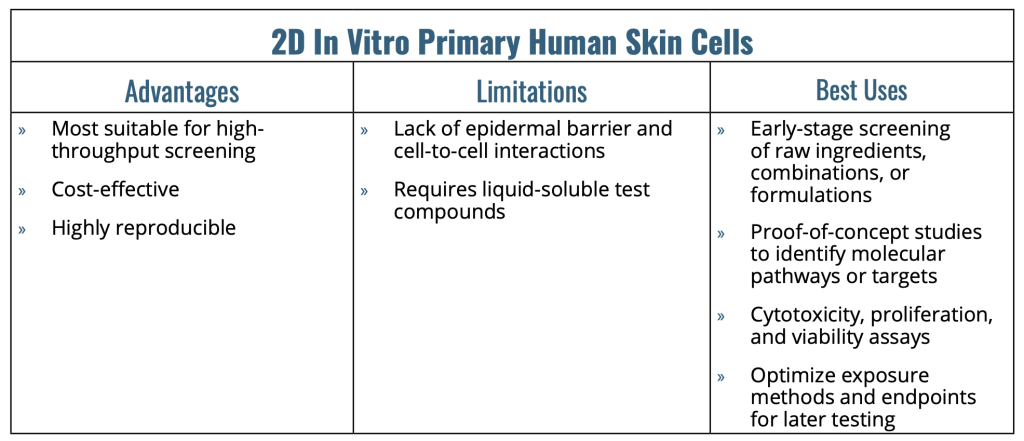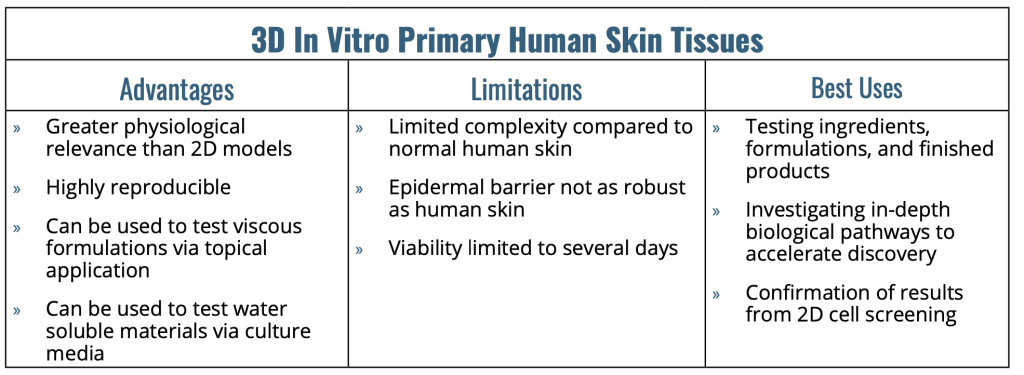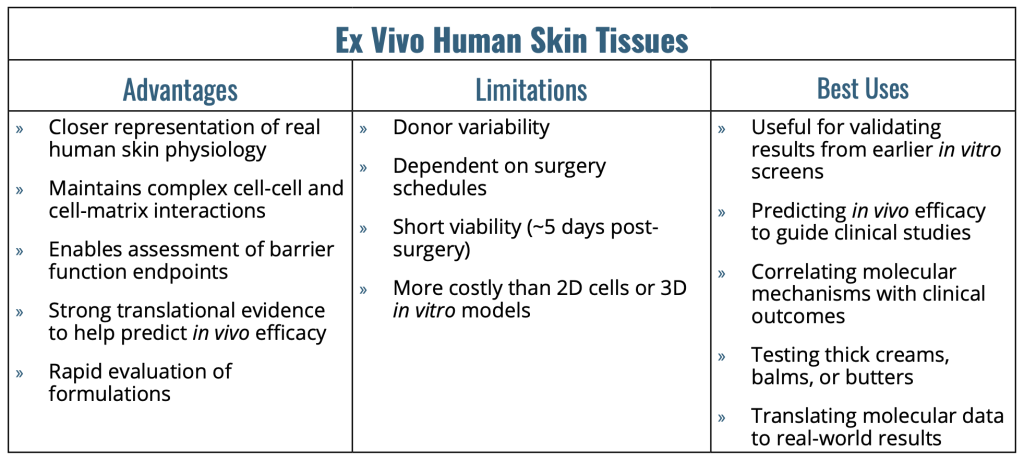As demand for evidence-based skincare continues to grow, consumer perception studies are no longer sufficient. Consumers want proof that products deliver on their claims, and regulators, clinicians, and consumers expect molecular and cellular evidence of safety and efficacy. Now, more than ever, preclinical testing using in vitro or ex vivo tissue models is a critical part of the product development process.
When developing skincare products, selecting the right cell or tissue model is one of the most significant choices for study design. Depending on the goal, different in vitro and ex vivo systems may provide the best insights. Keep reading to understand the pros and cons of each tissue model and how they can help you determine the impact of ingredients and formulations on skin biology at the molecular level.
In Vitro Testing Models
“In vitro” means “in glass” and refers to experiments conducted outside living organisms in controlled laboratory settings. In skincare research, in vitro models often are 2D cells of 3D skin equivalents. In vitro models have several advantages, serving as an ethical alternative to animal testing.
What are 2D In Vitro Primary Human Skin Cells?
2D In vitro primary skin cells are single cell types isolated from human tissues. The most common primary cells in skincare research include keratinocytes, fibroblasts, melanocytes, dermal papilla cells, and adipocytes. Cells are grown in a dish using specialized media and controlled laboratory conditions. Cells can be obtained from donors with specific demographic characteristics, such as age, sex, body location, and ethnicity.
In vitro primary human skin cells offer excellent scalability, making them ideal for screening ingredients or early-stage formulations. The initial vial of cells can be cultured and subcultured many times, making 2D cells a highly reproducible model for comparing results across multiple studies and over long periods of time.

What Are 3D In Vitro Human Skin Tissues
In vitro human skin tissues are lab-grown 3D skin models generated from human primary keratinocytes. The tissues can also be produced with fibroblasts to mimic dermal cell layers and/or melanocytes to study pigmentation. All 3D skin models include a stratum corneum, while full thickness models also feature a functional epidermal-dermal architecture. 3D tissues offer greater physiological relevance than 2D cells, and their structure allows fro topical application of serums, creams, and gels. Multiple batches of the 3D skin models can be generated from the original primary cells of a single donor (or pooled donors), making these models highly reproducible.

What are Ex Vivo Human Skin Tissues
Ex vivo human skin tissues are fresh skin explants obtained from consenting surgical donors. These tissues retain the full complexity of human skin, including the epidermis, dermis, barrier function, hair follicles, immune cells, and vascular structure. Because of this, ex vivo models are considered the gold standard for physiological relevance in preclinical testing.

Choosing the Right Model for Your Product Development
By integrating in vitro and ex vivo testing into your R&D pipeline, skincare formulators can optimize ingredient selection, validate product performance, and reduce time to market with science-backed results. Selecting the right tissue model helps ensure your data is reliable and physiologically relevant.
About Genemarkers
Genemarkers is a CLIA-certified, CAP-accredited contract research laboratory specializing in genomic and proteomic testing for the consumer products and pharmaceutical industries. Our team partners with formulators, ingredient suppliers, and product developers to provide molecular insights that drive innovation and validate product efficacy. Using advanced in vitro, ex vivo, and molecular analysis techniques, we help clients uncover mechanisms of action, evaluate safety and performance, and generate data to support science-backed claims. With customizable testing panels and a strong foundation in molecular biology, Genemarkers supports every stage of product development.
